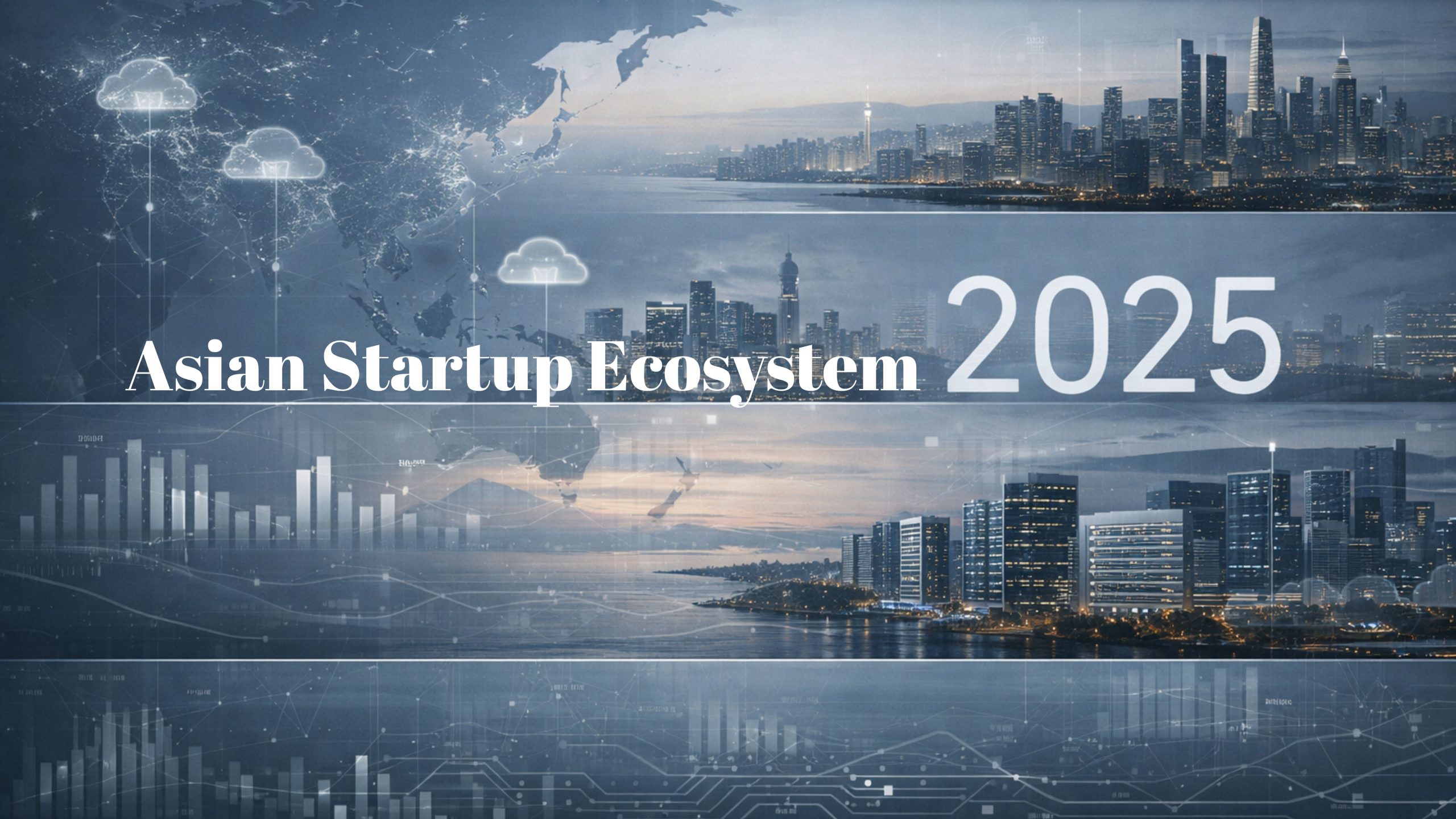AsiaTechDaily – Asia's Leading Tech and Startup Media Platform

Vietnam’s Startup Ecosystem Tops $3.2B in Funding, Produces Six Unicorns: Tracxn
Vietnam’s tech startup sector has crossed a new milestone, attracting $3.2 billion in total funding and producing six unicorns, according to Tracxn’s Vietnam Tech Startup Pulse: An All-Time View. The report highlights how the country, now home to over 5,500 startups, has emerged as one of Southeast Asia’s most dynamic innovation hubs.
Much of this momentum has come in the past decade: over 60% of Vietnamese startups were founded between 2015 and 2025, while nearly three-quarters of all funding—$2.3 billion—was secured in just the last five years. The year 2021 marked a breakthrough, with $1.2 billion raised on the back of landmark rounds from Tiki, MoMo, and VNLIFE.
The ecosystem is heavily concentrated in its two largest cities. Hanoi and Ho Chi Minh City together host more than 4,200 startups, with the latter leading in capital inflows at $1.8 billion. Hanoi, meanwhile, has attracted nearly $1 billion, with VNLIFE accounting for more than half of that sum. Emerging hubs like Da Nang and Can Tho are beginning to diversify the map, but the country’s startup economy remains urban-centric.
Investor Landscape
The report highlights a strong investor base, with over 290 venture capital firms active in Vietnam. Prominent backers include CyberAgent Capital, Genesia Ventures, and Do Ventures, which have consistently fueled early-stage growth. Notably, venture capital accounts for 90% of total investments between 2020 and 2025, underscoring the ecosystem’s reliance on risk capital over corporate or strategic funding.
Companies like MoMo, Tiki, and Sky Mavis have benefited most, but newer scale-ups such as Sendo, OnPoint, Telio, Thuocsi, and Nhi Dong 315—collectively raising over $400 million—signal an ecosystem with growing depth beyond its unicorns.
Six Unicorns and Rising Stars
Vietnam’s six unicorns—Tiki, MoMo, Sky Mavis, VNPAY, VNLIFE, and VNG—span fintech, gaming, and e-commerce, underscoring the breadth of the country’s digital economy. Each has played a distinct role: MoMo as a digital wallet expanding into lending and insurance; Sky Mavis achieving global recognition with Axie Infinity; Tiki driving logistics for e-commerce; VNG dominating domestic gaming; and VNPAY and VNLIFE pushing cashless payments. Together, they embody Vietnam’s capacity to create scalable, globally relevant tech businesses.
Exits Signal Market Maturity
Maturity is also reflected in exits. Tracxn counts 76 to date, including 52 acquisitions and 24 IPOs. Landmark deals like Central Group’s $1.05 billion joint takeover of Big C & Nguyen Kim and Sea Limited’s $64 million acquisition of Foody highlight how foreign players are consolidating local markets. More recent IPOs in 2025, such as BeLive Technology and TCBS, indicate investor appetite for fintech and digital services scale-ups.
This growing exit pipeline signals that Vietnam is moving beyond early-stage fundraising toward creating tangible investor returns.
Policy support has underpinned this trajectory. Initiatives such as Vietnam Silicon Valley (2013), the National Technology Innovation Fund (2015), Project 844, and the 2017 SME Law created legal and financial frameworks for startups to thrive. This foundation, combined with urban innovation clusters and increasing VC inflows, explains the rapid rise captured by Tracxn’s data.
Looking ahead, Vietnam appears to be entering a scale-up phase. The challenge will shift from creating startups to sustaining growth and global competitiveness.
As Neha Singh, Tracxn’s co-founder, notes, “The emergence of multiple unicorns and billion-dollar funding years signals both local and global investor confidence. As the market continues to diversify across fintech, e-commerce, gaming, and healthcare, Vietnam is poised to be one of Southeast Asia’s most influential startup hubs.”
With Southeast Asia’s digital economy heating up, Vietnam’s combination of demographics, mobile-first consumers, and policy support positions it as one of the region’s most influential startup markets in the decade ahead.
Outlook: Leaner but Stronger
Vietnam’s ecosystem is entering a more measured phase. The post-2021 funding contraction is pushing founders to prioritize sustainable growth and profitability over rapid scaling. Yet the fundamentals remain compelling: a young population, mobile-first consumer behavior, supportive government policies, and increasing interest from global investors.
As Tracxn’s data shows, Vietnam is not just a fast-growing startup hub — it is now a maturing ecosystem, poised to produce its next wave of unicorns while offering more stable opportunities for both entrepreneurs and investors.



